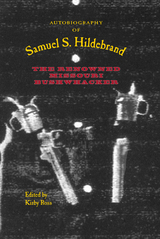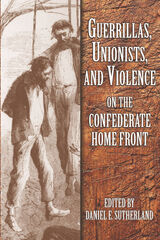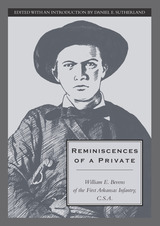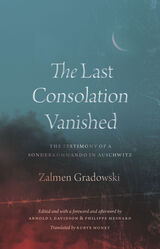4 books about Sutherland, Daniel E.

Autobiography of Samuel S. Hildebrand
The Renowned Missouri Bushwhacker
Kirby Ross
University of Arkansas Press, 2016
Most Civil War historians now agree that the guerrilla conflict shaped the entire war in significant ways. Some of these “bushwhackers”—Nathan Bedford Forrest, William Clarke Quantrill, John Singleton Mosby—have become quite infamous. Illiterate Sam Hildebrand, one of Missouri’s most notorious guerrillas—often compared to “Rob Roy,” and the subject of dime novels—was one of the few to survive the war and have his story taken down and published. Shortly after this he was killed in a barroom brawl. “I make no apology to mankind for my acts of retaliation; I make no whining appeal to the world for sympathy. I sought revenge and I found it; the key of hell was not suffered to rust in the lock while I was on the war path.” —Sam Hildebrand Hildebrand’s reign of terror gave the Union army fits and kept much of the Trans-Mississippi, especially Missouri, roiling in the 1860s. Over seven years of fighting he and his men killed dozens of soldiers and civilians, whites and blacks; he claimed to have killed nearly one hundred himself. He was accused of many heinous acts. The historical significance of Hildebrand’s story is substantial, but his bloody tale is eminently readable and stands quite well on its own as a cold-blooded portrait of a violent time in American history. Like the nightmarish and depraved world of the Kid in Cormac McCarthy’s novel Blood Meridian, Hildebrand’s world is truly ruthless and his story is brutally descriptive in its coolly detached rendering of one man’s personal war. Published in 1870, Hildebrand’s autobiography has long been out of print and has been a rare and highly prized acquisition among Civil War
[more]

Guerrillas, Unionists, and Violence on the Confederate Home Front
Daniel E. Sutherland
University of Arkansas Press, 1999
Until recently, this localized violence was largely ignored, scholars focusing instead on large-scale operations of the war—the decisions and actions of generals and presidents. But as Daniel Sutherland reminds us, the impact of battles and elections cannot be properly understood without an examination of the struggle for survival on the home front, of lives lived in the atmosphere created by war. Sutherland gathers eleven essays by such noted Civil War scholars as Michael Fellman, Donald Frazier, Noel Fisher, and B. F. Cooling, each one exploring the Confederacy's internal war in a different state. All help to broaden our view of the complexity of war and to provide us with a clear picture of war's consequences, its impact on communities, homes, and families. This strong collection of essays delves deeply into what Daniel Sutherland calls "the desperate side of war," enriching our understanding of a turbulent and divisive period in American history.
[more]

Reminiscences of a Private
William E. Bevens of the First Arkansas Infantry C.S.A.
Daniel E. Sutherland
University of Arkansas Press, 1999
Reminiscences of a Private is William Bevens’s personal chronicle of his participation in such famous Civil War battles as Shiloh, Chickamauga, Atlanta, and Nashville. There is no supernal heroism here, no pretension, no grandiose analysis. Bevens is neither introspective nor philosophical, and he rarely dwells on the larger issues of the war. He concerns himself with what mattered to him as a common foot soldier. There are longer and fuller accounts of the war; however, few are as honest or as direct as this frank and forthright journal. By confining his contributions as editor to filling gaps in Bevens’s narrative, to correcting some misspellings, and to providing dates and explanatory notes, Daniel Sutherland allows Bevens to tell his story of a young Arkansan at war. His unassuming voice will speak to all readers with compelling candor.
[more]

A Very Violent Rebel
The Civil War Diary of Ellen Renshaw House
Daniel E. Sutherland
University of Tennessee Press, 1996
Ellen Renshaw House was only nineteen years old in 1863 when she began a detailed journal of her experiences in Knoxville, Tennessee, amid the turmoil of the Civil War. Her diary, now published for the first time, is a remarkable document of the divided loyalties that were so pronounced in that part of the state and of the daily effects the war had on civilians.
A member of a middle-class family that had moved to Knoxville in 1860 from Georgia, Ellen House became, like her parents and siblings, a fervent Confederate—or, as she called herself, “a very violent Rebel.” When the city fell to Federal forces in September 1863, Ellen’s resentments ran deep, and she filled her diary with scornful words for the occupying Yankees. She eagerly followed the news of military actions that might mean the recapture of the city and became an eyewitness to the war’s dangers when Confederate General James Longstreet launched an ill-fated attack on Knoxville late in 1863. Despite her own privations, Ellen gave much of her time to providing relief to Confederate prisoners of war in the city. Since she made no secret of where her sympathies lay, Federal military authorities eventually suspected her of spying and expelled her to Georgia, where she continued to record her impressions and observations.
Only recently brought to light by the diarist’s descendants, this compelling personal record has been meticulously edited and annotated by Daniel Sutherland. The resulting volume adds a spirited and articulate voice to the chorus of available firsthand testimony on America’s bloodiest conflict.
A member of a middle-class family that had moved to Knoxville in 1860 from Georgia, Ellen House became, like her parents and siblings, a fervent Confederate—or, as she called herself, “a very violent Rebel.” When the city fell to Federal forces in September 1863, Ellen’s resentments ran deep, and she filled her diary with scornful words for the occupying Yankees. She eagerly followed the news of military actions that might mean the recapture of the city and became an eyewitness to the war’s dangers when Confederate General James Longstreet launched an ill-fated attack on Knoxville late in 1863. Despite her own privations, Ellen gave much of her time to providing relief to Confederate prisoners of war in the city. Since she made no secret of where her sympathies lay, Federal military authorities eventually suspected her of spying and expelled her to Georgia, where she continued to record her impressions and observations.
Only recently brought to light by the diarist’s descendants, this compelling personal record has been meticulously edited and annotated by Daniel Sutherland. The resulting volume adds a spirited and articulate voice to the chorus of available firsthand testimony on America’s bloodiest conflict.
[more]
READERS
Browse our collection.
PUBLISHERS
See BiblioVault's publisher services.
STUDENT SERVICES
Files for college accessibility offices.
UChicago Accessibility Resources
home | accessibility | search | about | contact us
BiblioVault ® 2001 - 2024
The University of Chicago Press









